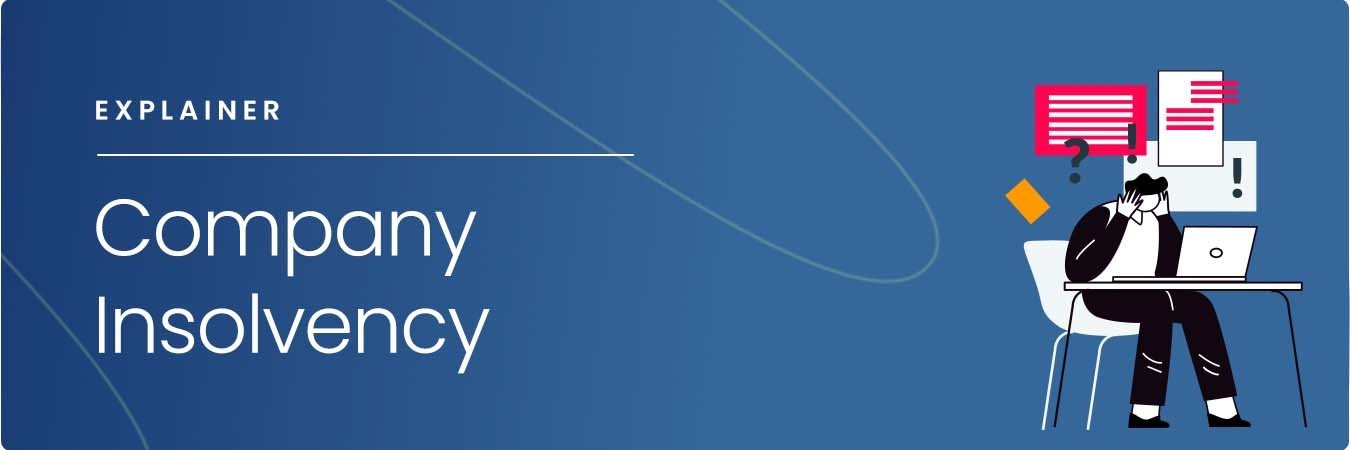The Main Principles Of Insolvency Practitioner
The Definitive Guide for Insolvency Practitioner
Table of ContentsA Biased View of Insolvency PractitionerThe 8-Minute Rule for Insolvency PractitionerNot known Facts About Insolvency PractitionerHow Insolvency Practitioner can Save You Time, Stress, and Money.The Buzz on Insolvency PractitionerThe 6-Minute Rule for Insolvency PractitionerInsolvency Practitioner Fundamentals Explained
Insolvency is when obligations are higher than the worth of the company, or when a borrower can not pay the financial debts they owe. A firm can become bankrupt because of a number of circumstances that cause bad cash money circulation. When faced with bankruptcy, an organization or person can speak to creditors straight and restructure financial obligations to pay them off.Service owners might contact creditors directly and restructure debts into even more workable installments. Financial institutions are generally open to this technique because they want to be paid back and prevent losses, even if the repayment is on a delayed schedule.
The Ultimate Guide To Insolvency Practitioner
The owner creates a proposition outlining how the financial obligation might be restructured utilizing cost decreases or other prepare for assistance. The proposal shows lenders just how the company may produce adequate cash flow for profitable procedures while paying its financial debts. Commonly, a forgiven debt might be taken into consideration earnings by the Internal Profits Solution (IRS).

Not known Factual Statements About Insolvency Practitioner
Business may wind up paying huge amounts of cash in damages and be unable to proceed operations. When operations stop, so does the company's income. Absence of income results in unsettled expenses and lenders requesting cash owed to them. Some business end up being financially troubled since their items or solutions do not develop to fit consumers' transforming demands.
Expenditures surpass revenues and bills stay unpaid. Cash-flow insolvency takes place when a company has the assets to cover their financial obligations but they are in the incorrect kind, such as genuine estate instead of fluid funds. Balance-sheet insolvency, on the other hand, shows a lack of assets in any type of kind to cover financial debts.
The internal revenue service states that a person is bankrupt when the overall obligations surpass total properties. A insolvency, on the other hand, is a real court order that depicts how an insolvent person or business will repay their creditors, or exactly how they will certainly market their properties in order to make the payments.
Insolvency Practitioner Can Be Fun For Anyone

Comprehending the aspects that can lead to insolvency, such as overspending, can aid you prevent bankruptcy and its consequences.
Things about Insolvency Practitioner
It is well known that supervisors and officers of corporations (and supervisors of limited responsibility companies) owe fiduciary responsibilities to their companies and their shareholders (or members). These fiduciary responsibilities are specified by state statutes and, though there are variations from state to state, they normally consist of an obligation of loyalty and a duty of treatment.
The duty of care requires supervisors and policemans to exercise persistance, to make enlightened choices, and to act in good faith to make sure that their actions are in the most effective interest of the company. Though beyond the range of this conversation, some states allow these obligations to be restricted either by so keeping in mind in the organizational documents or adhering to various other requirements.
The 9-Minute Rule for Insolvency Practitioner
The majority of states specify insolvency in two ways( 1) when a firm's liabilities come to be higher than the sum of its assets or (2) when the firm ends up being not able to pay its financial debts as they come to be dueand accept both meanings (Insolvency Practitioner). The shift in tasks occurs due to the fact that when a company is financially troubled, there is no value in the company past that owed to the firm's lenders so that the equity owners no much longer have a financial risk in the business
Take care regarding giving browse around these guys investors advantageous treatment at the cost of lenders (e.g., authorizing and moneying a dividend or a stock redemption). Beware about preferential therapy in between classes of shareholders. Clear up efforts to learn all the facts before taking a certain strategy; supervisors need to truly believe that any type of decisions made remain in the most effective passions of the corporation in its entirety (i.e., decisions will be assessed in knowledge taking into account the result of such activities on the firm).
In any type of bankruptcy or insolvency proceeding, settlements made to specific lenders at the expenditure of other financial institutions can be clawed back, specifically if there is some link between the firm and the financial institution. Consider recommending at an annual investor meeting (or any kind of other conference of stockholders) a resolution verifying that all prior company choices and actions taken by the supervisors and policemans of the firm were taken in great faith after an exercise of practical treatment.
The Definitive Guide to Insolvency Practitioner
Completely divulge any type of personal or business connections with parties on the various other side of deals involving the corporation to prevent the look of a dispute of rate of interest. In assessing potential fund elevating transactions or a sale of possessions of the troubled firm, know that these deals may be inspected later on due to any Learn More kind of subsequent expansion of supervisors' fiduciary duties to include lenders.